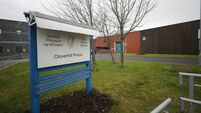Bespoke cancer trials edge closer

Researchers have spotted rare ‘flag’ proteins that act as immune system targets and are displayed on the surface of all of a patient’s tumour cells, wherever they might be in the body. Normally they are shielded from the immune system, or missed because rapidly-evolving cancers present too many constantly changing targets.
Once the omnipresent proteins, or ‘antigens’, are isolated, potent immune system cells called T-cells can be employed as homing missiles to zero in on them and destroy the cancer. Such an approach, which involves mapping the DNA in a patient’s tumour sample, would help to overcome the ability of cancers to resist therapies by altering their genetic make-up.












